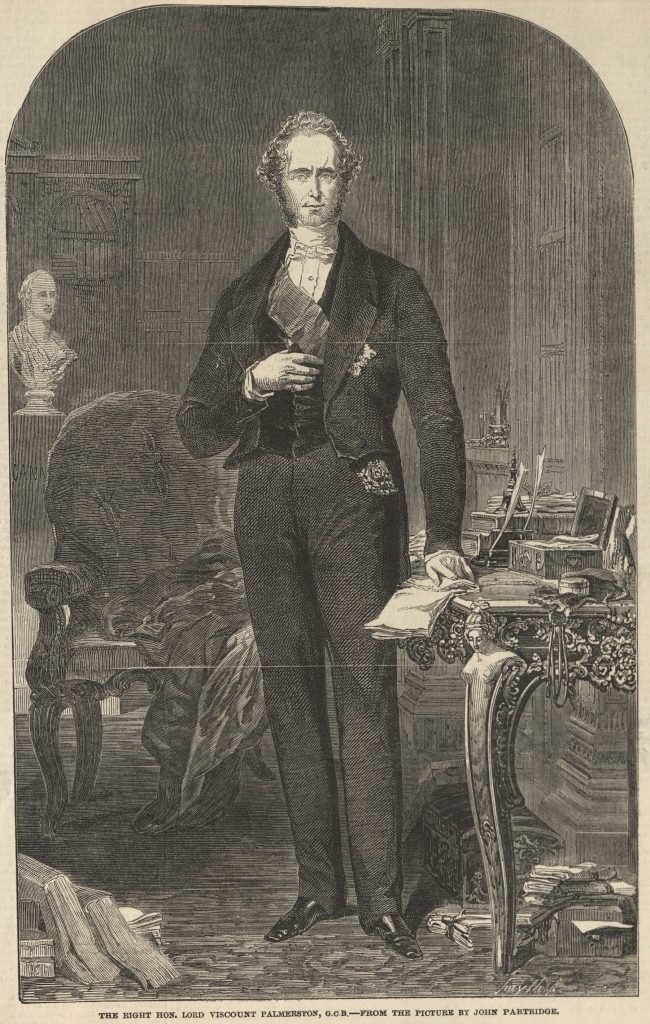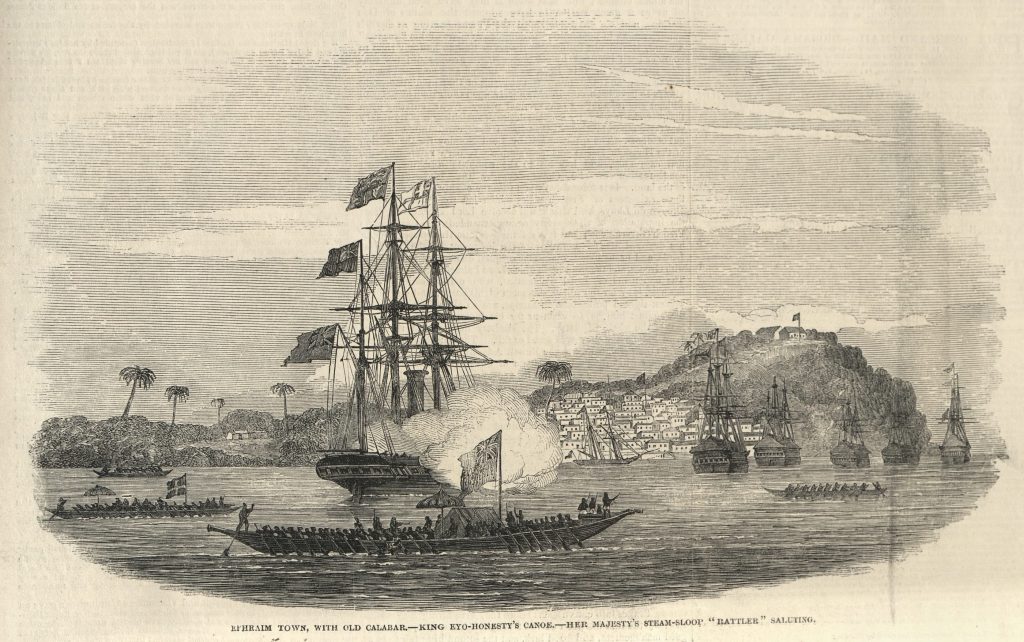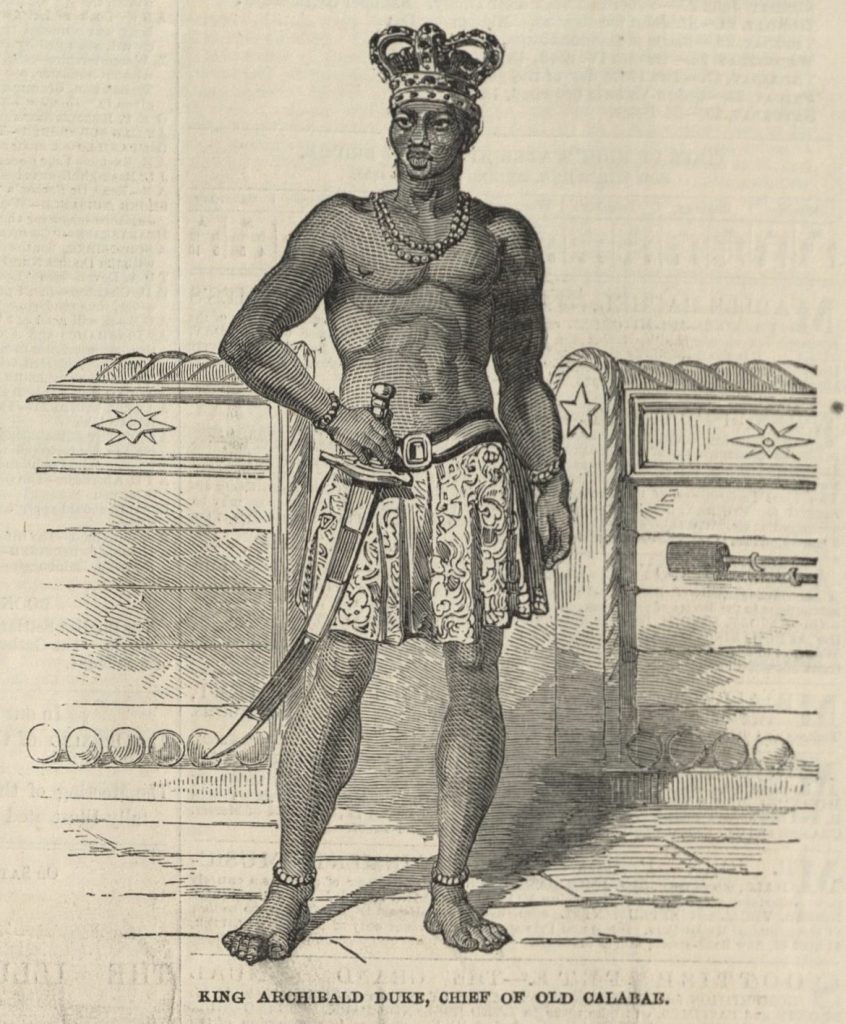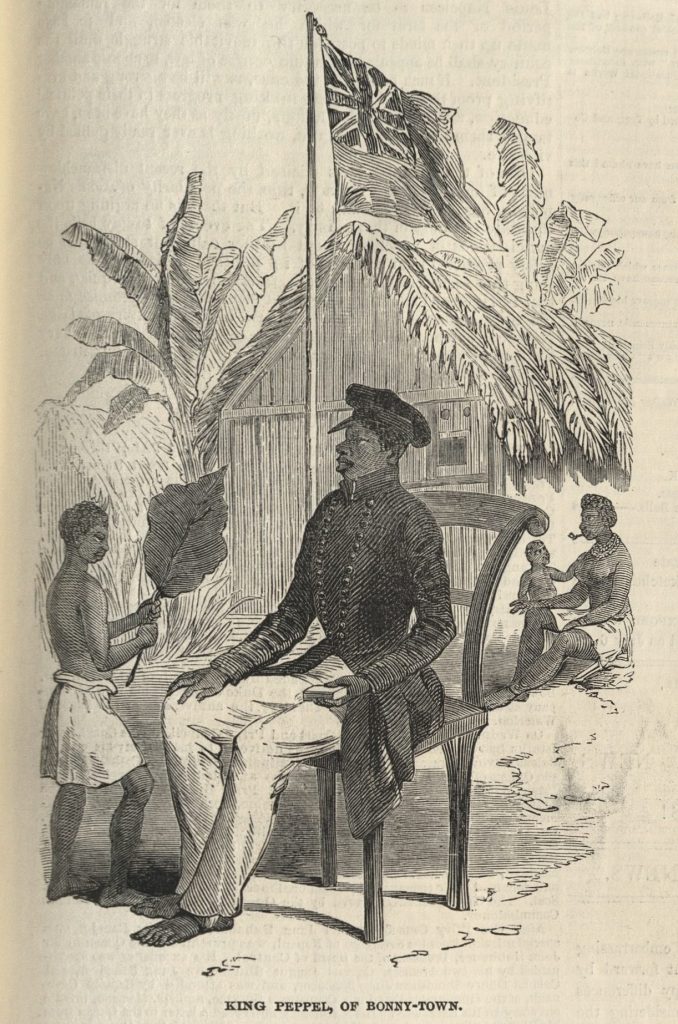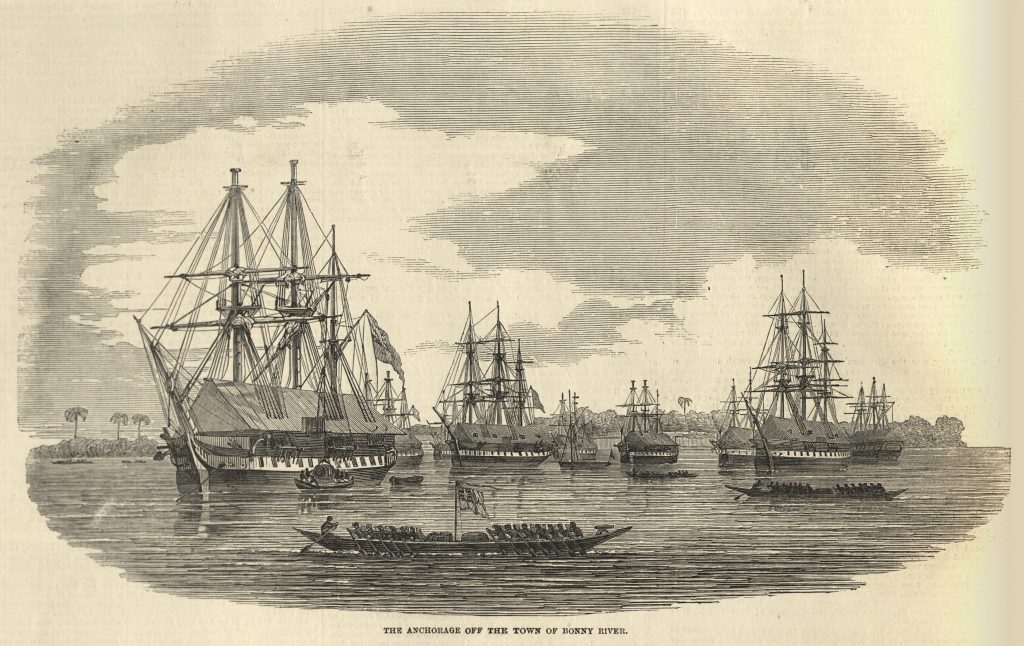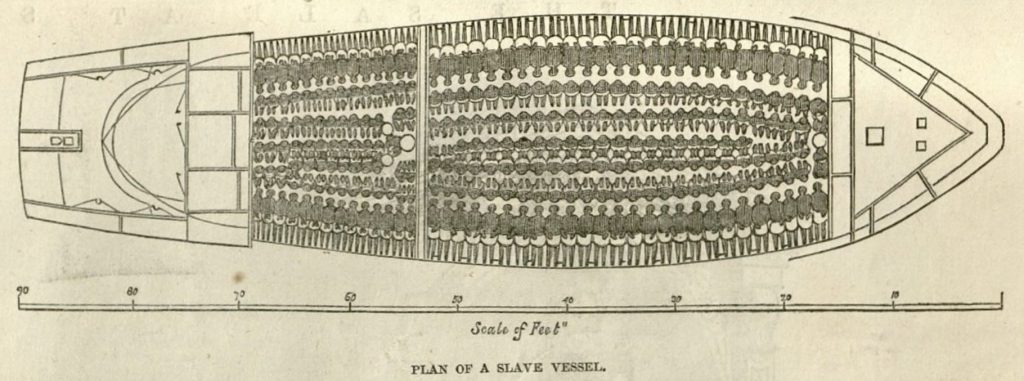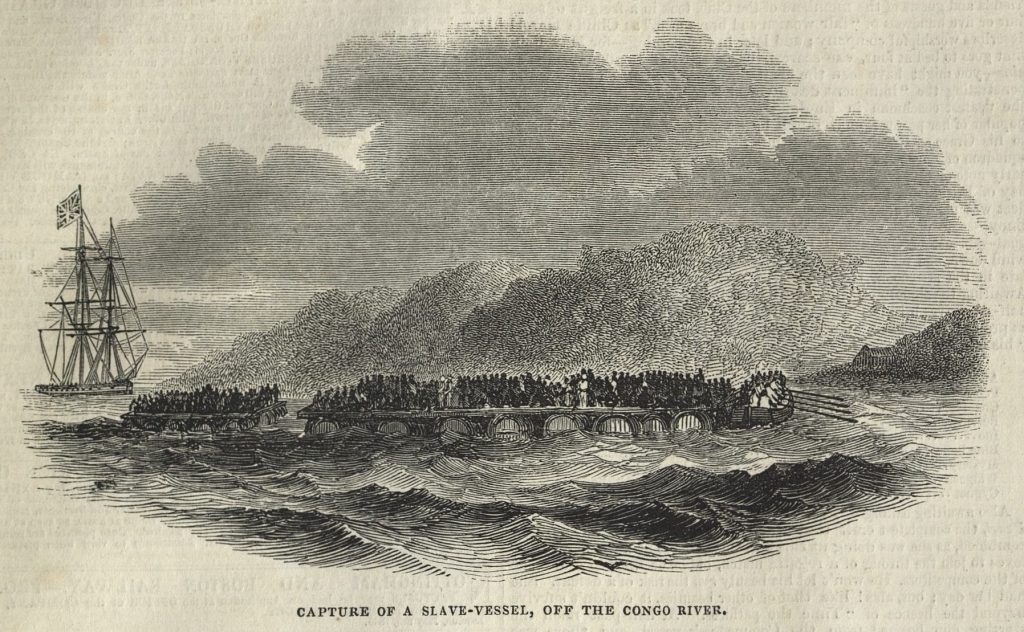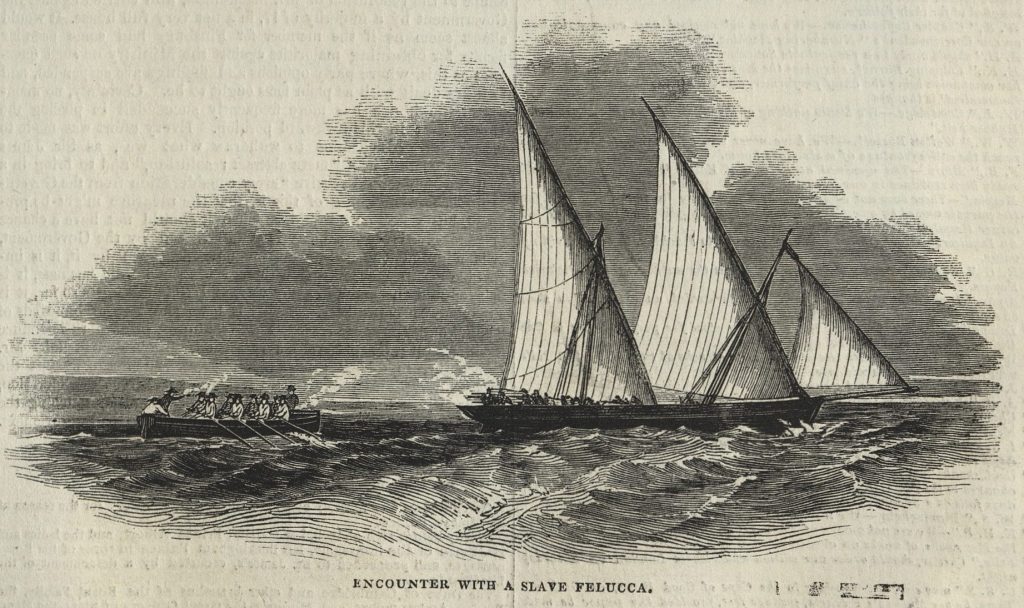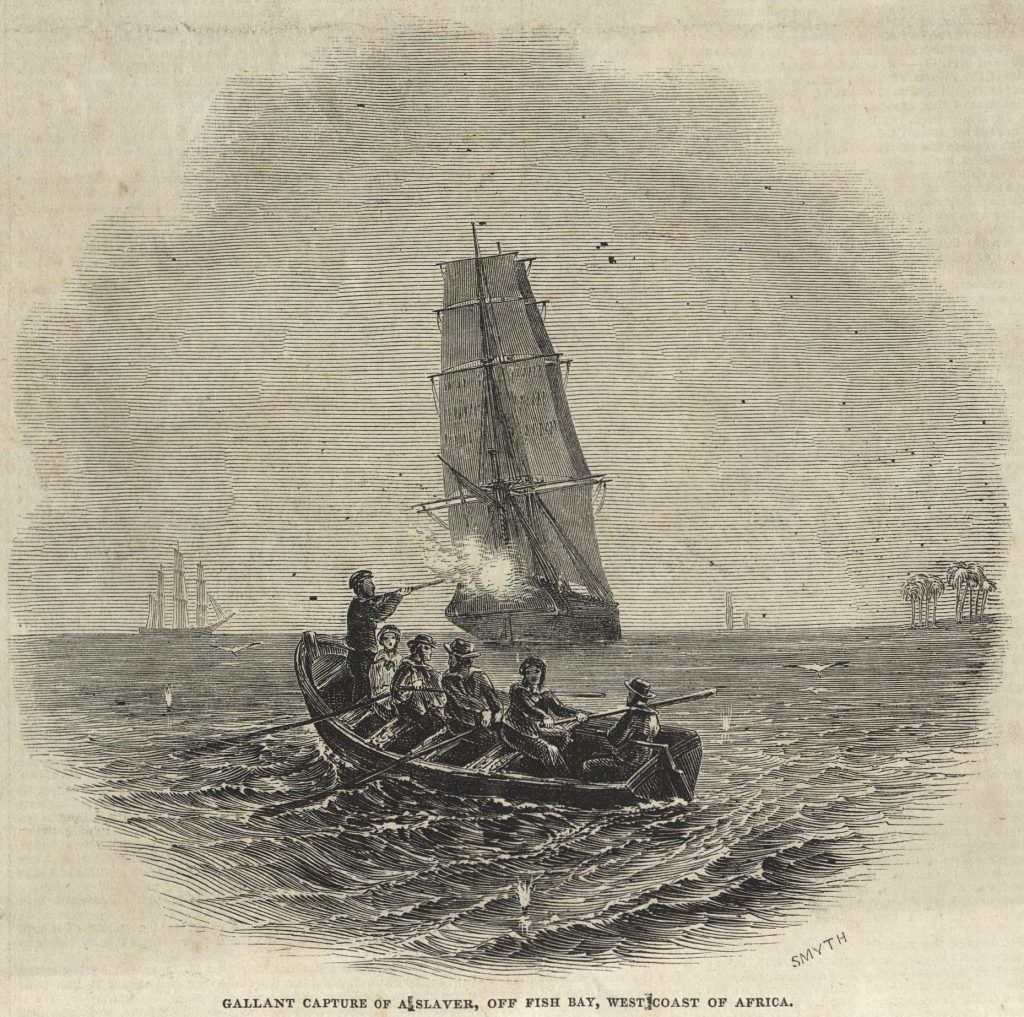Viscount Palmerston was one of the most important British politicians of the nineteenth centry. During much of the 1830s and 40s he was the Foreign Secretary in several Whig Gvernments. From 1859 until is death in 1865 he was Prime Minister. He played a critical role in formulating British policy for the suppression of the […]
Read More
Old Calabar was an important port of slave embarkation in the Bight of Benin, present-day Nigeria. The image shows the town of Ephraim, near Old Calabar, located in the background, with H.M.S. Rattler saluting King Eyo Honesty. The Illustrated London News, 22 June 1850. Courtesy of University of Missouri Libraries.
Read More
The suppression of the slave trade required not only the collaboration of governments in Europe or the Americas, but also in Africa. The image shows a picture of King Achibald Duke, Chief of Old Calabar, an important port of slave embarkation in the Bight of Biafra. The Illustrated London News, 22 June 1850. Courtesy of […]
Read More
The suppression of the slave trade required not only the collaboration of governments in Europe or the Americas, but also in Africa. The image shows a picture of King Peppel of Bonny Town, one of the largest ports of slave embakation on West Africa. The Illustrated London News, 22 June 1850. Courtesy of University of […]
Read More
Bonny River, near the delta of the Niger River in present-day Nigeria, was a major point of slave embarkation. No wonder British man of war would frequently visit the river. The following image shows the anchorage off the town of Bonny River, with British and othe ships laying on the harbor. The Illustrated London News, […]
Read More
Representations of slaves packed into vessels played an important role in illustrating the horrors of the middle passage, and the evils of the slave trade. The Illustrated London News, 26 August 1848. Courtesy of University of Missouri Libraries.
Read More
Sketches of slave ships were a popular way of publicizing the horrors of the slave trade and galvanizing support for the suppression campaign. The following image provides a bird’s eye view of the hold of a slave ship, showing how slaves were chained to the deck. The Illustrated London News, 26 August 1848. Courtesy of […]
Read More
The Congo River was always an important point of slave embarkation. In the nineteenth century, however, its importance as a source of slaves further increased as the legislation to suppress the traffic initially focused on the North Atlantic. The following image shows a British man of war preparing to rescue Africans who were previously on […]
Read More
Encounters of naval vessels with slave ships on the coast of Africa were frequent and provided exciting reading material for anti-slavery audiences. The following image shows an example of such encounters. Here a boat from British man of war engages with a slave felucca, a smal slave ship on the coast of Africa. The Illustrated […]
Read More
As the suppression campaign progressed, slave traders sought new points of embarkation along the coast of Africa. The more hidden and discreet they were, the better for them. Fish Bay, in present-day Angola, is an example of such points. It was located in a remote region, but not too far from previous and more important […]
Read More

